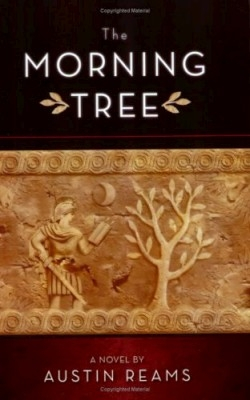The Morning Tree
- 2006 INDIES Finalist
- Finalist, Historical (Adult Fiction)
The Bible story that is the basis for the Christian holiday of Easter has been molded over the centuries into a rote parable. Most people could chant its highlights of the story without much effort: Judas Iscariot betrayed Jesus, Pilate washed his hands of the crucifixion, Jesus rose from the dead on the third day, and so on.
This author has another take it. His fast tale follows the protagonist, Ras, a centurion in the Roman army who also believes in Jesus, through harrowing flights and fights with incredulous evil creatures who start out normal (although sinister) enough: “at the far end was the dark old man from the street shop on a black horse. His silhouette stood black against a purple horizon. He held a scale in his left hand, laughing. With each breath the man grew larger. Ras shook his head and squinted. It is an illusion. Soon the man and horse doubled in size.” This morphing old man and horse sets off one of a series of slashing, bloody battles to outrun evil in its worst forms. It would seem that Ras’s mission—to rescue the missing scroll of the gospel of Jesus—is insurmountable.
Seven others travel with Ras as a caravan to Jerusalem, but Ras remains a loner—mainly because of his hideous skin affliction. His body is covered in scaly sores and scars. He can barely tolerate the delicate rays of the full moon; he would die if exposed to the sun. Therefore, the danger is compounded since the caravan must only travel at night.
The unending tension provides a sure vehicle to keep the reader barreling along with the mission. There are mysterious turns in the plot that add to the delight of seeing this story brought to (new) life. Reams (a high school teacher who practices law and consults to the iNternational Atomic Energy Agency) offers a realistic, detailed portrayal of the countryside, towns, the people, and the great city of Jerusalem.
The reader cares about Ras and his inner angst with his own personal truth. “Lucifer pointed a harsh finger at Ras. ‘You serve me with deeds like that, Ras. It feels good to win with violence, doesn’t it?’” Ras is tortured with wanting to follow the teachings of Jesus without giving up his noble and respected reputation as the strongest, most dependable centurion who kills without a second thought.
The author hints: “There is no room for war or killing in Jesus’ teachings. If there is a lesson in this novel, that is it.” Maybe true. But the reveal at the end, at the morning tree, which is actually a fig tree, gives the reader a different, more intricate version of the Easter story. This lesson will surely stretch the reader’s imagination, and perhaps, belief system. And that’s always a good thing.
Reviewed by
Aimé Merizon
Disclosure: This article is not an endorsement, but a review. The publisher of this book provided free copies of the book to have their book reviewed by a professional reviewer. No fee was paid by the publisher for this review. Foreword Reviews only recommends books that we love. Foreword Magazine, Inc. is disclosing this in accordance with the Federal Trade Commission’s 16 CFR, Part 255.

